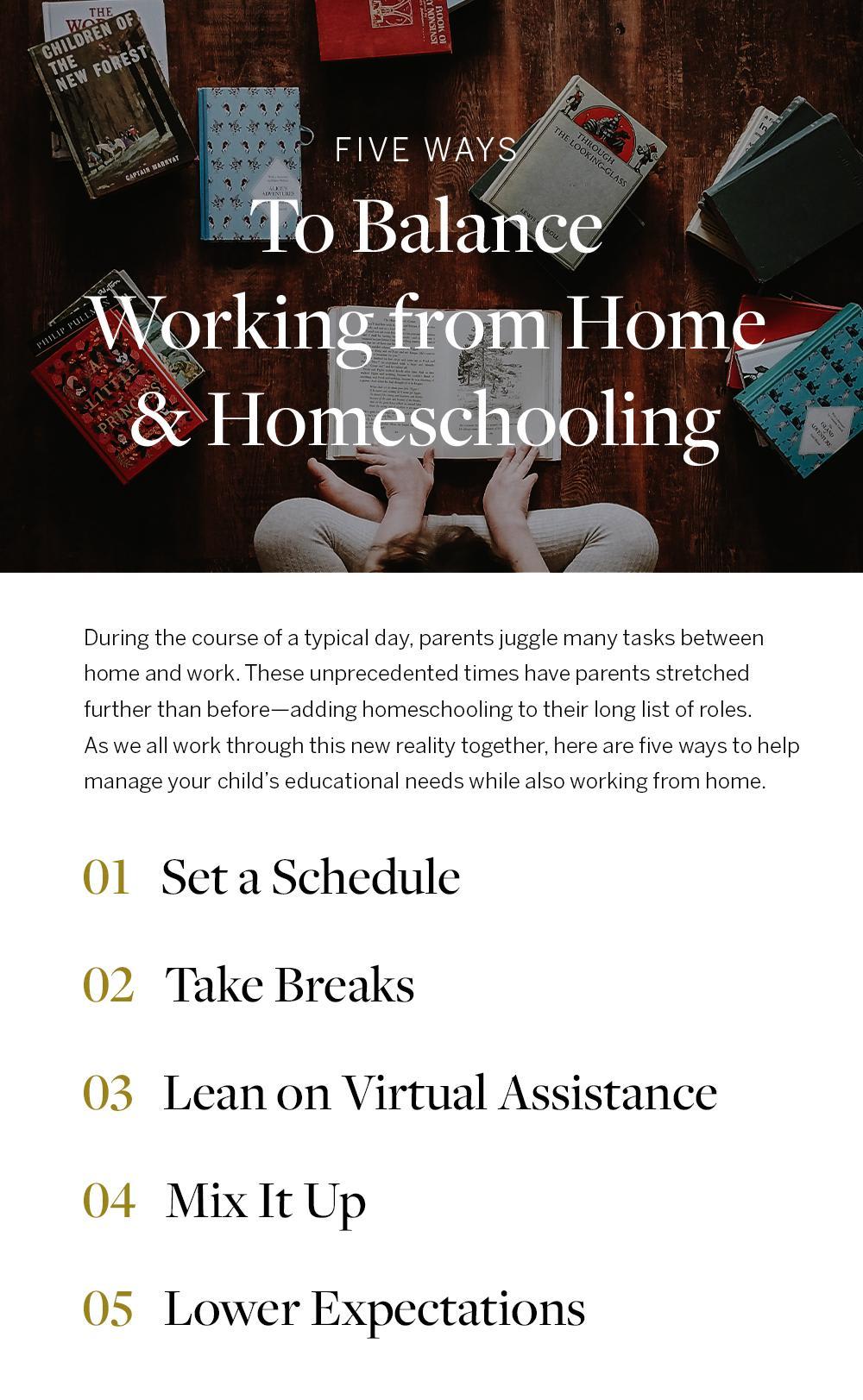During the course of a typical day, parents juggle many tasks between home and work. These unprecedented times have parents stretched further than before—adding homeschooling to their long list of roles. As we all work through this new reality together, here are five ways to help manage your child’s educational needs while also working from home.
1. Set a Schedule
Whether your child is in pre-school or high school, they’re no doubt accustomed to being on a schedule inside the walls of their school – and there are benefits from that. Write the day’s schedule in a highly visible and highly trafficked place or use devices powered by Alexa or Google to set reminders. Among other things, this sets clear expectations for what can be expected for the day.
2. Take Breaks
Every household will be different – just like every child. It’s important to tailor your schedule and workload to what works for your family. That being said, everyone needs breaks. Grab a snack, cup of coffee or a breath of fresh air with your child to break up your day; enjoy the quality time. Studies show that taking breaks help our brains perform better.
3. Lean on Virtual Assistance
Managing screen time is a point of contention when it comes to the age of your child and how often they’re on their phone/tablet, but in these times it’s important to get help from where you can. Let people like renowned children’s author and artist Mo Willems teach art class, let celebrities handle story time, or call on Les Mills to proctor gym class. There are also a plethora of worksheets available from places like Lakeshore to keep the activities going while you get some work done.
4. Mix it Up
Schedules and a catalog of resources are great, but variety will keep your learners engaged and stave off the much-maligned sentiment of, “I’m bored.” Talk to your child and determine what’s working – and what’s not – before venturing out of comfort zones. Is your child an avid reader? Try Oxford Owl to foster some alone-time with an age-tailored story. Looking for a more hands-on task? Make organizing socks, toys, pencils, or the pantry into a game.
5. Lower Expectations
At the end of the day, you have to do what’s best for you and your family and that means you can’t guarantee anything. Don’t live in a world of absolutes – if a schedule that has treated you well falls apart for a few days, don’t fret; staying flexible will keep both you and your child more content in the long run.
We are not the experts here – we’re all in this together. Learn more about succeeding at this balancing act from Money, The Atlantic, and the BBC. Share what’s working for you in the comments.

